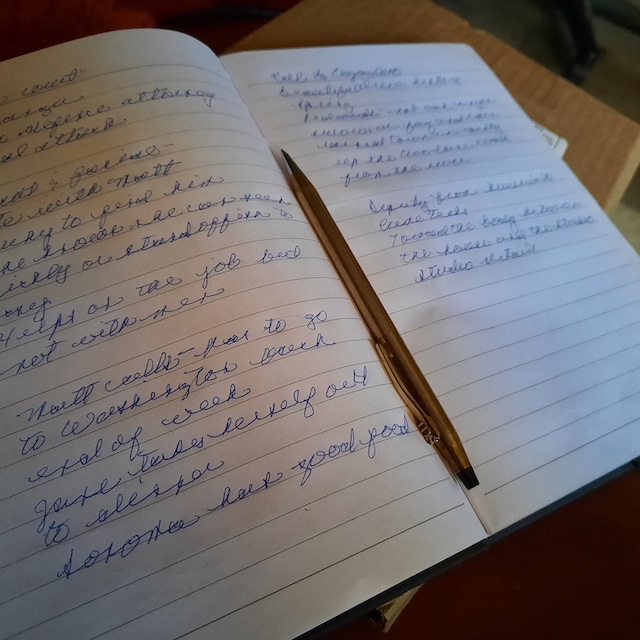The Psychology of a Mystery Villain: the Mind and Motivations of a Memorable Antagonist

Photo by freestocks on Unsplash
Even though your mystery villain is hidden for most of your novel, you need to have a deep understanding of the character. The villain is a pillar character along with your sleuth and the victim.
In a mystery, the villain is a hidden antagonist. Opposition characters may keep your sleuth from discovering the villain or obstruct their investigation, but the villain remains hidden until the final reveal.
You need to know your villain inside and out. Know their motivation, their quirks, their weaknesses, their strengths. That way you can choose what to show and what to hide until the reveal. Your storytelling job is ti hide and hint. You want your reader to say, ”I should have guessed.”
Why Knowing the Psychology of Your Villain Matters
Developing a compelling villain is as essential as crafting an intriguing plot or a captivating hero. Although the villain’s identity remains concealed for much of the novel, understanding their psychology is vital for several reasons that will significantly enhance the story’s depth and impact.
1. Create Authentic Motivation
A well-drawn villain with a clear psychological profile provides authentic motivations for their actions. Readers are astute and can quickly sense when a character’s actions don’t align with their supposed motivations. By understanding the villain’s fears, desires, and internal conflicts, you ensure that every malevolent act makes sense within the broader context of the character’s psyche. This level of detail transforms a flat, one-dimensional villain into a complex, believable individual whose actions, while reprehensible, are understandable.
2. Build Suspense and Foreshadowing
A deep understanding of the villain’s psychology allows for the subtle planting of clues and red herrings throughout the narrative. These elements are essential for keeping readers engaged and adding layers of suspense. Well-placed hints and behavioral cues heighten the tension as readers unconsciously start piecing together the villain’s identity and motives. This technique ensures that the eventual revelation feels both surprising and inevitable, resulting in a more satisfying resolution.
3. Enhance Character Interactions
Even though the villain’s true nature is hidden, they interact with other characters, including the protagonist, in ways that are influenced by their psychological makeup. Understanding this allows you to craft interactions that are laden with subtext and tension. For instance, a deeply insecure villain might overcompensate with bravado or manipulation, creating intriguing dynamics in their relationships with other characters. These nuanced interactions enrich the narrative and provide deeper insights into both the villain and the other characters.
4. Drive the Plot Forward
A villain’s psychological depth can be a key driver of the plot. Their desires and fears can instigate events that create obstacles for the protagonist, establishing the central conflict of the story. A psychologically rich villain often has a backstory that, when revealed, adds layers to the plot, explaining past events and guiding future actions. This not only propels the narrative forward but also weaves a more intricate and engaging story web.
5. Create Emotional Resonance
Readers invest emotionally in stories where the characters, including the villain, feel real and multifaceted. By creating the psychological aspects of the villain, you evoke empathy, fear, or even grudging respect from the audience. This emotional engagement makes the confrontation between protagonist and villain more impactful and the resolution of their conflict more fulfilling. A poignant or morally conflicted villain can linger in readers’ minds long after they have finished the book, elevating the story from a mere puzzle to a profound narrative experience.
The Cornerstone Villain
In mystery writing, the villain often remains shrouded in secrecy, but this should not preclude a deep psychological understanding of their character. By comprehending the inner workings of the villain’s mind, you can craft more persuasive motivations, enhance suspense through foreshadowing, create richer interactions, drive a more dynamic plot, and evoke stronger emotional responses from their readers. The hidden psychology of the mystery villain is not just an element of intrigue but a cornerstone of compelling storytelling that can elevate a mystery novel from good to unforgettable.
The Psychology Behind Techniques Villains Use to Cover Up Crimes
In the world of mystery writing, the concealment of a crime is nearly as crucial as the crime itself. Understanding the psychology behind the techniques villains use to hide their misdeeds adds a layer of realism and complexity to your story. It goes into the cunning and calculating aspects of the villain’s mind, highlighting their resourcefulness and desperation.
1. Manipulation and Deception
One of the primary techniques villains employ to cover up their crimes involves manipulation and deception. Psychologically, this stems from their ability to understand and exploit human behavior. Villains often possess high emotional intelligence, which they use to manipulate others into aiding in their cover-up or diverting suspicion from themselves. This might involve creating alibis, planting false evidence, or even turning the suspicions onto someone else. By understanding the motive behind these manipulative actions—whether it be fear, power, or a desire to maintain a façade—you create more convincing and multilayered characters.
2. Meticulous Planning
Another hallmark of an effective villain is meticulous planning. This is not just about having a clever crime but also about anticipating every possible consequence and obstacle. The psychological underpinning is often rooted in traits like obsessive-compulsive tendencies, perfectionism, or an intense fear of failure. A villain who plans everything down to the smallest detail is often doing so as a way to exert control over their chaotic emotions or life circumstances. Writers who dig into these psychological aspects portray villains whose hyper-detailed cover-up strategies become a reflection of their inner compulsions and anxieties.
3. Psychological Manipulation
Villains often rely on psychological manipulation to keep their crimes hidden. This can involve gaslighting—making others doubt their perceptions—or using charm and charisma to disarm those around them. The psychology behind these techniques is typically rooted in a deep understanding of human nature and an ability to exploit others’ weaknesses and insecurities. By exploring these psychological traits, you create villains who are not only cunning and dangerous but also eerily relatable in their ability to understand and exploit human behavior.
4. Rationalization and Justification
Psychologically, villains often rationalize and justify their actions to themselves, which aids in their ability to cover up their crimes without betraying guilt or fear. This cognitive dissonance allows them to live with their actions, convincing themselves that their deeds were necessary or justified. This mental gymnastics is crucial for maintaining their composure and continuing to deceive others. When you go into this aspect, you portray a villain whose internal monologue reveals a twisted sense of logic and morality, making their actions both horrifying and comprehensible.
5. Intimidation and Threats
To ensure silence and compliance, many villains resort to intimidation and threats. This technique is rooted in their ability to inspire fear and maintain authority. Psychologically, this reflects a villain’s need for power and control, often stemming from their insecurities or past traumas. By intimidating others, they assert dominance, ensuring that their crimes remain concealed. Exploring this psychological aspect helps you create villains whose menacing presence is palpable, adding heightened tension to their narrative.
6. Adaptability and Improvisation
Despite their planning, villains must often adapt on the fly when things don’t go as expected. This requires quick thinking and the ability to improvise, qualities that reflect a flexible and often highly intelligent mind. The psychological driver is typically a combination of ego and survival instinct. They see themselves as superior thinkers who can outsmart any situation. This adaptability provides you with the opportunity to depict a villain whose constantly evolving strategies keep readers and protagonists on their toes.
Mind and Menace
Understanding the psychology behind the techniques villains use to cover up their crimes enables writers to craft more believable and compelling characters. These techniques—manipulation, meticulous planning, psychological manipulation, rationalization, intimidation, and adaptability—are not just plot devices but reflections of the villain’s inner workings.
You can create villains whose actions are rooted in deep psychological truths, enhancing the richness and realism of their stories and making the ultimate unraveling of their schemes all the more gratifying for readers.
Master the Subtleties of Your Villain
In mystery writing, the success of your narrative often hinges on the credibility and depth of your villain. Understanding the psychological intricacies behind the techniques they use to cover up crimes is essential for creating a gripping and believable story. By going into the villain’s mindset, their manipulation, meticulous planning, and cunning adaptability, you elevate the tension and complexity of your mystery novel, ensuring that readers are both challenged and entertained.
The dual exploration of the villain’s psychology and their cover-up methods transforms a simple plot into a multifaceted web of intrigue, where every move by the villain feels authentic and unnervingly close to reality. This depth not only keeps your readers on the edge of their seats but also provides a rich soil from which your narrative can flourish.
Ready to Bring Your Villain to Life?
If your villain feels flat or your mystery plot isn’t resonating as strongly as you’d like, it might be time for some expert guidance. Acclaimed mystery author and writing coach Zara Altair offers a Transformative Power Hour Coaching Session specifically designed to tackle your unique writing challenges.
Conquer Your Blocks with Zara Altair’s Power Hour]
In just one hour, Zara will help you identify your stuck points, provide personalized guidance, offer practical solutions, and reignite your passion for writing. Whether you’re dealing with plot holes, character development, or any other writing hurdle, Zara’s expertise can help you turn your challenges into strengths.
Don’t let your writing roadblocks hold you back. Take a step towards mastering the psychology of your villain and crafting a compelling mystery.
🚀 Book Your Power Hour Session Today! 🚀
Start your journey to mystery writing success with proven, personalized advice. With Zara Altair’s guidance, no villain will ever feel flat again.






